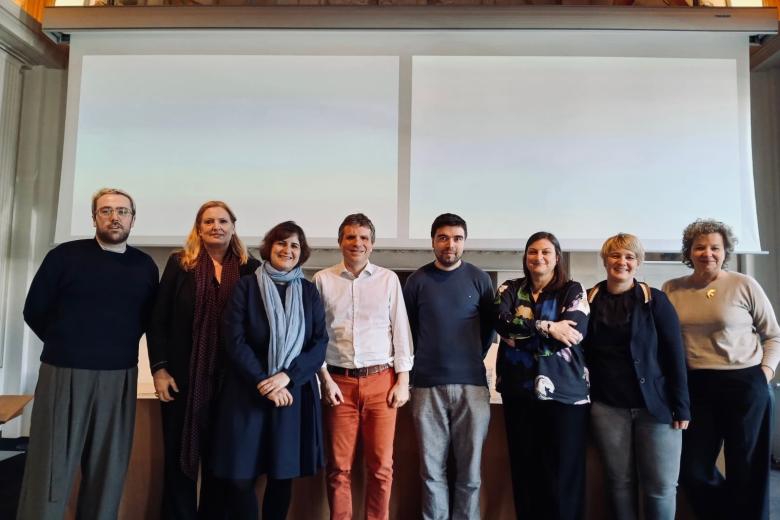Workshop on EU Crises and Emergencies Concludes
The two-day workshop on EU Crises and Emergencies in EU Integration has successfully concluded, marking the close of the first year of the EmergEU Jean Monnet Centre of Excellence.
The workshop, hosted at Maastricht University on 16 and 17 June 2025, brought together scholars of law, political science, and related disciplines to interrogate how the European Union (EU) defines, governs, and is transformed by crises and emergencies. Against a backdrop of the Eurozone crisis, the migration crisis, the COVID-19 pandemic, and Russia’s war in Ukraine, the EU has increasingly been confronted with extraordinary events that test its constitutional foundations, governance mechanisms, and legitimacy. Yet despite the relevance of these events in the institutional and academic discourse, there remains no settled understanding of what qualifies as a ‘crisis’ or ‘emergency’, nor of how such labels shape institutional responses and longer-term integration trajectories.
The workshop opened with a keynote lecture by Professor Bruno de Witte (Maastricht University), who situated the debate in the broader legal context of EU emergency law. He underlined that, unlike many national systems, the EU Treaties provide no general emergency clause. Instead, the Union has relied on a scattered set of emergency competences and flexible interpretations of ordinary Treaty bases. In his view, emergency responses have demonstrated the EU’s capacity to adapt within the constraints of its legal order. This framing provided a point of reference for the four panels that followed, which explored how crises and emergencies are conceptualised, how they reshape governance structures, and how they are navigated in conditions of uncertainty.
Upcoming events
Keep an eye on the Centre's website to find out more about upcoming activities and upcoming events.
Also read
-
Andrés Caceres Solari on No room for Human Rights in Gaza and Ukraine: How the Law Legitimizes Urban Devastation
Pick Our Brains Session with Andres Caceres Solari

-
Teacher Information Points at UM
UM faculties now host Teacher Information Points (TIPs) that offer local, “just-in-time” and on-demand support for teaching staff. The aim is simple: to provide help that is closely connected to day-to-day teaching practice.

-
Globalisation & Law Network seminar with Damian Chalmers
On 4 November 2025, the Globalisation & Law Network had the honour of welcoming Prof. Damian Chalmers to discuss his paper “The EU’s Governing by Legal Shadows”.
